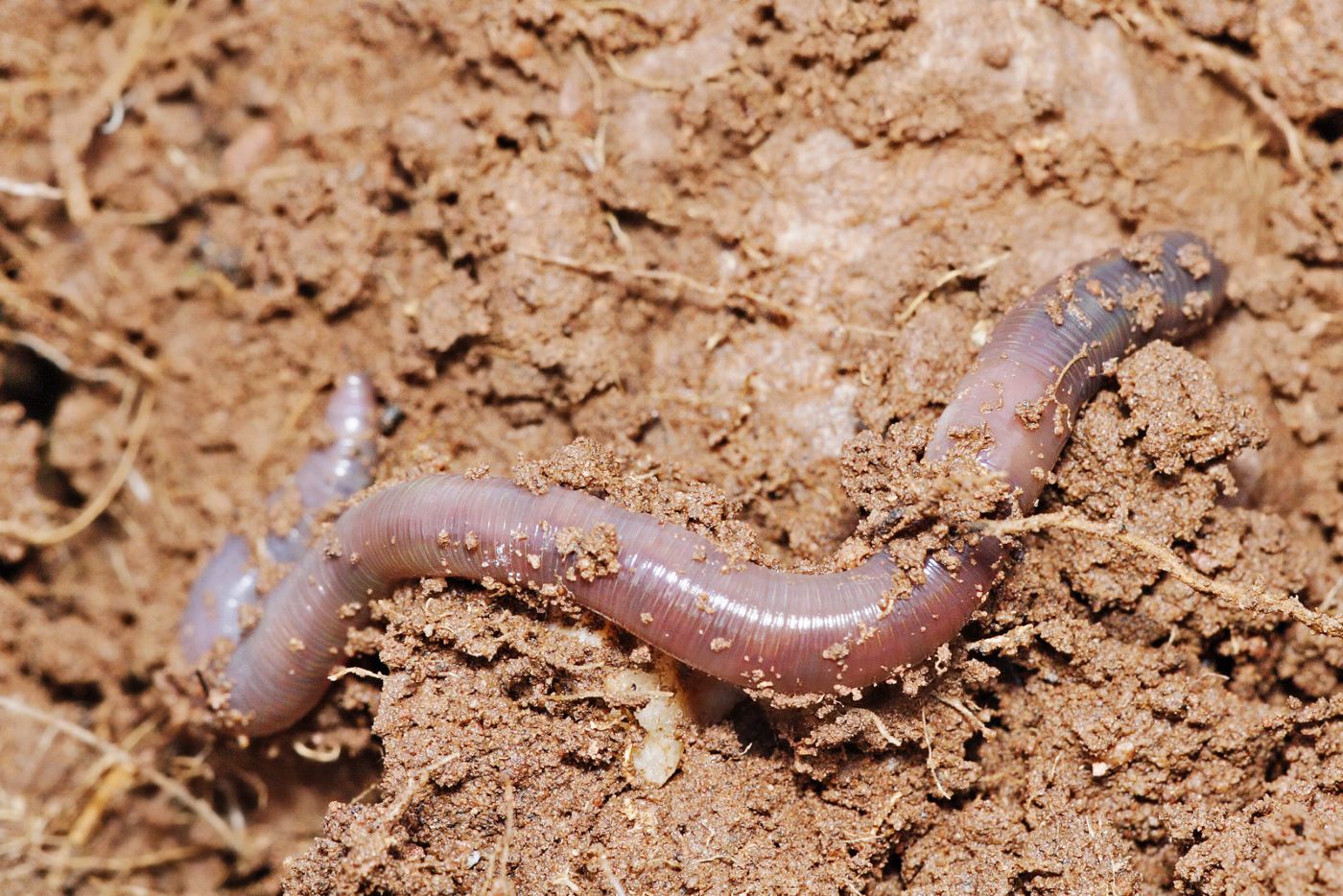
Detritivores are a fascinating group of organisms that play a crucial role in the ecosystem. They are often overlooked or overshadowed by the more glamorous creatures in the animal kingdom, but their importance cannot be overstated. These small but mighty creatures are responsible for breaking down organic matter, such as dead plants and animals, into smaller particles, thereby recycling nutrients back into the environment.
In this article, we will delve into the world of detritivores and uncover some truly unbelievable facts about these unsung heroes of the natural world. From their remarkable adaptations to their crucial ecological functions, prepare to be amazed by the wonders of detritivores!
Key Takeaways:
- Detritivores are nature’s clean-up crew, breaking down dead organic matter and recycling nutrients to maintain ecosystem health and balance.
- From woodlice to microscopic bacteria, detritivores play a crucial role in decomposition and nutrient cycling, ensuring the sustainability of ecosystems.
Detritivores: Nature’s Clean-Up Crew
Detritivores are like the unsung heroes of nature, as they clean up dead plant and animal matter from the environment. They efficiently break down organic materials, such as fallen leaves, decaying wood, and animal carcasses, turning them into nutrients that can be absorbed by plants and reused within the ecosystem.
From Woodlice to Earthworms: Diverse Detritivores
The world of detritivores is incredibly diverse and includes familiar organisms like woodlice and earthworms. These small creatures may not be as glamorous as their predator counterparts, but they play a critical role in recycling nutrients and maintaining the overall health of the ecosystem.
Rotting with Purpose: Detritivores and Decomposition
Detritivores excel at decomposition, the process of breaking down dead organic material. They have specialized enzymes in their digestive systems that allow them to efficiently break down complex compounds like cellulose and lignin, which are otherwise difficult for other organisms to digest.
Detritivores: Nature’s Recycling Engineers
Detritivores help in the recycling of essential nutrients such as nitrogen, phosphorus, and carbon. By breaking down organic matter, they release nutrients back into the soil, making them available for uptake by plants. This nutrient cycling ensures the sustainability and productivity of ecosystems.
The Microscopic Decomposers: Bacteria and Fungi
While larger detritivores like earthworms get more attention, the real workhorses of the decomposition process are the microscopic decomposers, including bacteria and fungi. These microorganisms break down organic matter at the cellular level, playing a crucial role in nutrient cycling.
Detritivores: Masters of Efficiency
Detritivores have evolved efficient feeding strategies that allow them to extract as much nutrition as possible from decaying matter. Some detritivores, like dung beetles, use nutrient-rich dung as a food source and even roll it into balls for later consumption.
Detritivores: Balancing Ecosystems
Detritivores help in maintaining the delicate balance within ecosystems. By preventing the accumulation of dead organic matter, they reduce the risk of pests and diseases that can arise from decomposing material. Detritivores also provide food for other organisms, creating a critical link in the food web.
Detritivores: Indicators of Ecosystem Health
The presence and abundance of detritivores can serve as indicators of ecosystem health. A healthy ecosystem will have a diverse community of detritivores, as their absence or decline can suggest imbalances in nutrient cycling or environmental disturbances.
Detritivores are fascinating creatures that perform vital functions in the natural world. Through their role as nature’s clean-up crew, they contribute to the well-being and sustainability of ecosystems. Appreciating the work of detritivores reminds us of the intricate web of life and the importance of maintaining a balanced and healthy environment for all organisms to thrive.
Conclusion
Detritivores play a crucial role in maintaining the balance of ecosystems by feeding on decaying organic matter. These incredible organisms help decompose dead plants and animals, breaking them down into smaller particles and returning vital nutrients back into the environment. We hope these 8 unbelievable facts about detritivores have provided you with a deeper understanding of their importance and fascinating capabilities.From their ability to thrive in extreme environments to their role in soil formation and recycling nutrients, detritivores truly are remarkable creatures. Their efficiency in breaking down organic matter not only contributes to the health of ecosystems but also plays a vital part in the carbon cycle.Next time you stumble upon an earthworm, millipede, or dung beetle, take a moment to appreciate the crucial role they play in nature. Detritivores may not always be in the spotlight, but they are undoubtedly unsung heroes of the natural world.Remember to protect and preserve the habitats where detritivores reside, as their presence is essential for the functioning of ecosystems and the overall health of our planet.
FAQs
1. What are detritivores?
Detritivores are organisms that feed on dead plants and animals, breaking them down into smaller particles. They play a vital role in decomposition and nutrient recycling in ecosystems.
2. How do detritivores contribute to the environment?
Detritivores help in the decomposition process, breaking down organic matter and releasing essential nutrients back into the environment. They also play a role in soil formation and contribute to the overall health and balance of ecosystems.
3. What are some examples of detritivores?
Common examples of detritivores include earthworms, millipedes, woodlice, dung beetles, and some species of bacteria and fungi.
4. Are detritivores important for the carbon cycle?
Yes, detritivores play a crucial role in the carbon cycle. By breaking down dead organic matter, they release carbon back into the environment, which can be used by plants for photosynthesis, thus completing the carbon cycle.
5. Can detritivores survive in extreme environments?
Detritivores are known for their ability to survive in various environments, including extreme conditions such as deserts and freezing temperatures. They have adapted to these harsh conditions and play an important role in the ecosystems found in these areas.
6. How do detritivores aid in nutrient recycling?
Detritivores break down dead organic matter, releasing nutrients such as nitrogen, phosphorus, and potassium back into the environment. These nutrients can then be used by plants for growth, contributing to the overall nutrient cycling in ecosystems.
7. Are detritivores beneficial for agriculture?
Yes, detritivores are beneficial for agriculture. Earthworms, for example, improve soil structure and nutrient availability, making them essential for healthy crop growth. Their burrowing activities also enhance soil aeration and water infiltration.
8. How can we support detritivores?
To support detritivores, it is important to maintain healthy ecosystems. This includes avoiding the overuse of pesticides and chemicals, practicing sustainable agriculture, protecting natural habitats, and reducing pollution. Creating compost heaps and providing organic matter in gardens can also provide food sources for detritivores.
Detritivores play a crucial role in maintaining healthy ecosystems, but they're not the only fascinating creatures out there. From the incredible facts about ecosystems to the surprising facts about nature's decomposers and the unbelievable truths about nutrient cycles, nature is full of awe-inspiring wonders waiting to be explored. Dive deeper into the complex relationships and processes that keep our planet thriving, and discover even more mind-blowing facts about the natural world around us.
Was this page helpful?
Our commitment to delivering trustworthy and engaging content is at the heart of what we do. Each fact on our site is contributed by real users like you, bringing a wealth of diverse insights and information. To ensure the highest standards of accuracy and reliability, our dedicated editors meticulously review each submission. This process guarantees that the facts we share are not only fascinating but also credible. Trust in our commitment to quality and authenticity as you explore and learn with us.


